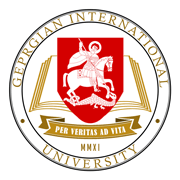Master of Science in International Economics
OVERVIEW
The Hayek School of Economics’ Master of Science (M.S.) program in International Economics provides a greater degree of focus on the field of international economics compared to more general M.S. or MBA programs which other universities offer. The program places emphases on the following sub-fields of the discipline of international economics: Micro Economics, Political Economy, International Relations and Monetary Economics. In a learning environment that is equipped with the latest technology, the Hayek School of Economics’ graduate students master these fields and learn to think strategically from the world-renowned faculty and top practitioners.
GRADUATE CERTIFICATE
Students who complete five courses, but do not finish the entire curriculum in order to meet graduation requirements for the M.S. degree, and decide to drop out of the program, nevertheless will be awarded a Graduate Certificate instead. In order to earn the Graduate Certificate the student must complete three of the principal courses and two courses either from the concentration or the electives.
GLOBAL EXPERIENCE AND STUDY ABROAD
The Hayek School of Economics offers more than just the traditional online experience. It combines in-class seminars and examinations with online guidance. The Hayek School of Economics provides its Master of Science candidates with valuable extracurricular opportunities to exchange ideas with high-level executives, participate in business simulation competitions, and the attend ESAP, the European Study Abroad Program of Georgian International University which gives our students unique opportunities to study, as well as teach in Europe, and receive full certifications and dual degrees from premier European academic institutions. Attending the ESAP is not mandatory for most programs, but it is always highly recommended. This will allow our candidates to become closely acquainted with international academic and economic cultures, people and unique economic philosophies, traditions and viewpoints of different nations
CURRICULUM & TUITION*
Tuition is approximately $800 per course, subject to change.
| Principle Course | Credits |
|---|---|
| ECON 500 Essential Economics | 3 |
| ECON 550 Managerial Economics | 3 |
| ECON 585 International Political Economy | 3 |
| STAT 550 Business Statistics | 3 |
| ECON 411 Classical Economics I: Milton Friedman | 3 |
| ECON 412 Classical Economics II: F.A. Hayek | 3 |
| ECON 413 Classical Economics III: Frederic Bastiat | 3 |
| Concentration Courses | Credits |
| ECON 501 Microeconomic Theory | 3 |
| ECON 510 Macroeconomic Theory | 3 |
| ECON 530 Internaitonal Trade Theory and Policy | 3 |
| ECON 590 International Monetary Economics | 3 |
| ECON 540 International Financial Economics | 3 |
| ECON 595 Economics I | 3 |
| Dissertation | Credits |
| MS 1 Proposal, APA Style, 2 pgs | 3 |
| MS 2 Thesis, APA Style, 30 pgs | 3 |
| Total Credits | 45 |
ADMISSIONS
We admit M.S. students on a quarterly basis. We welcome international students, as well as transfer students from reputable schools of good academic standing into its M.S. programs.
ENROLLMENT REQUIREMENTS
- A transcript(s) with undergraduate GPA of 3.0, or instead a Graduate Record Exam (GRE) test score of 550 on the verbal and 600 on the quantitative portion. In some cases Graduate Management Admission Test (GMAT) may be also acceptable.
- Two Letters of Recommendation from the school(s) previously attended.
- TOEFL score for international students.
PREREQUISITES
9 Economics Credits
3 International Economics or International Business Credits
3 Statistics Credits
Prior undergraduate or graduate courses in which a grade of B- or higher was attained can be used to meet the prerequisites of the program. Areas in which the student does not have prior coursework can have the necessary requirements met by taking the following foundation courses at Georgian International University:
ECON 310 – Microeconomic Theory
ECON 370 – Basics of International Economics
ECON 338 – Classical Economics IV (A Multinational Compendium)
STAT 350 – Basic Statistics
Truly exceptional applicants, who do not meet the enrollment requirements, still may be considered for the program. They must be interviewed in person and evaluated by the Graduate Committee. Taking additional prerequisite courses will be a part of the provisional admission. Prospective applicants must take under consideration that the university rarely makes such exceptions.
Download the PDF ADMISSION APPLICATION FORM
